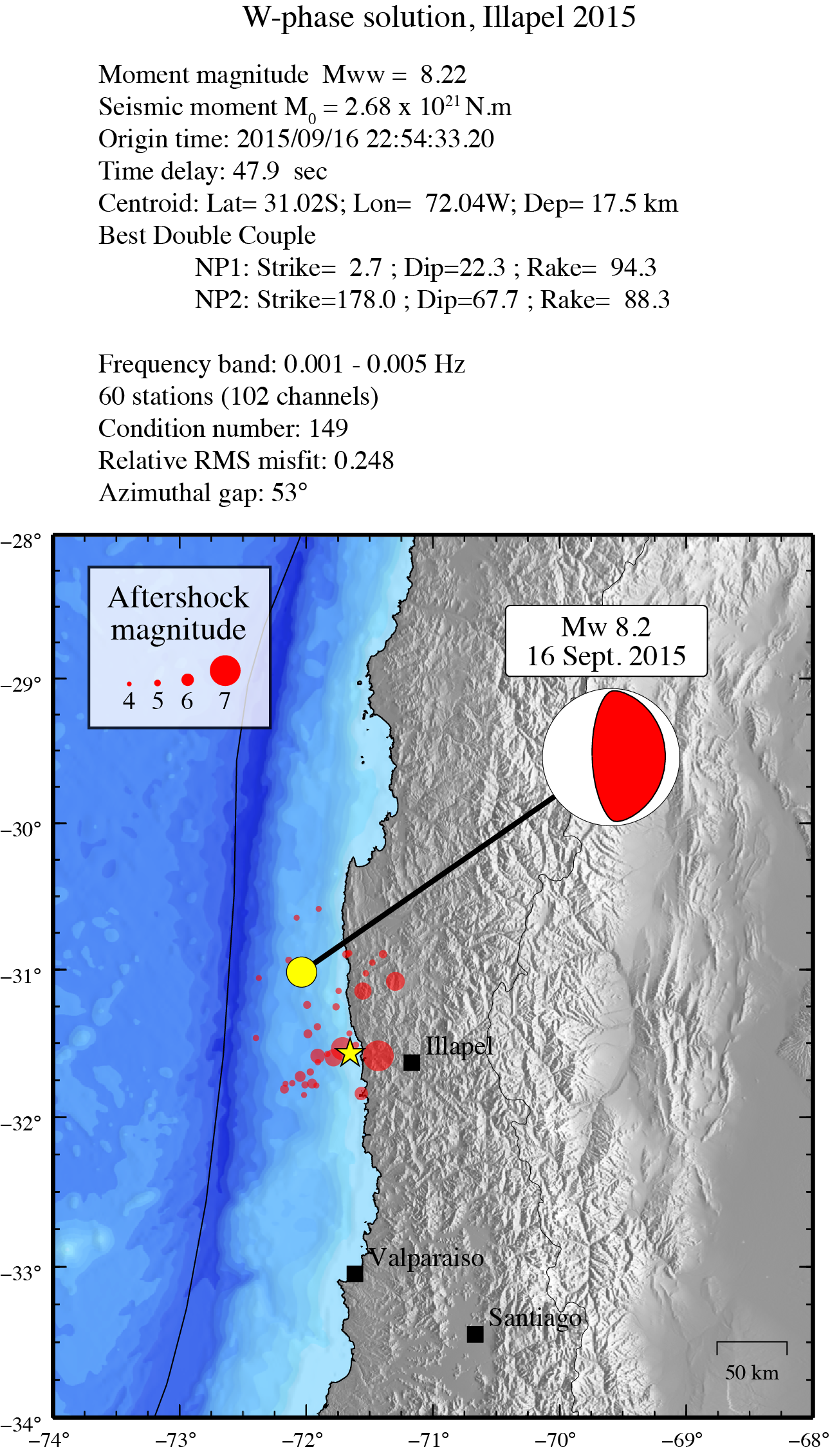Articles
Kanamori, H., 1993. W Phase, Geophys. Res. Lett., 20, 1691-1694.
Kanamori, H. & Rivera, L., 2008. Source inversion of W phase: speeding tsunami
warning, Geophys. J. Int., 175, 222-238.
Hayes, G., Rivera, L. & Kanamori, H., 2009. Source inversion of the W phase:
real-time implementation and extension to low magnitudes, Seismol. Res. Let.,
3, 800-805.
Duputel, Z., Rivera, L., Kanamori & H., Hayes, G., 2012. W-phase fast source inversion for moderate to large earhquakes (1990 - 2010), Geophysical Journal International, 189, 1125-1147
|
Data sources
IRIS Data Management System, and specifically
the IRIS Data Management Center, were used for
access to waveform and metadata required in
this study (http://www.iris.edu).
Global Seismographic Network (GSN) is a
cooperative scientific facility operated
jointly by the Incorporated Research
Institutions for Seismology (IRIS), the United
States Geological Survey (USGS), and the
National Science Foundation (NSF).
(http://www.iris.edu/hq/programs/gsn).
Geoscope operated by the Institut de Physique
du Globe de Paris (IPGP) and the Ecole et
Observatoire des Sciences de la Terre (EOST)
(http://geoscope.ipgp.fr).
|


